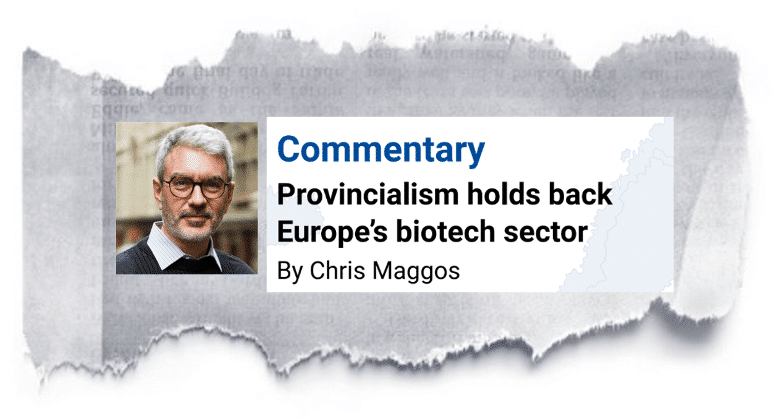
Provincialism is holding back Europe’s biotech sector
Commentary: Chris Maggos – MedNous June 2024
There’s an-often quoted story telling how Henry Kissinger complained that there was no single phone number when he needed to speak to someone in Europe. US investors seem to have taken a cue from it. Many say that Europe’s bewildering array of trading venues is making it nearly impossible for start-ups to raise enough money. And, if only there were a single platform in Europe, the funding gap for local biotech start-ups would quickly vanish.
But just like the Kissinger story isn’t true, the lack of a single platform isn’t our biggest problem. The funding gap is real: European biotechs got their hands on only a fifth of the capital their US peers attracted last year.1This is causing an exodus to the US with only the largest companies able to stay. Smaller concerns overwhelmingly have their eyes on America. It also makes Europe’s best companies easy takeover prey. So far this year, Asahi Kasei has scooped up Calliditas, Gilead acquired Cymabay, US Merck bought Eye Bio, and Johnson & Johnson now controls Numab Therapeutics. While this provides important gains for investors, the shift in ownership means long-term financial benefits, and often jobs, leave Europe.
Setting up a single trading venue alone would not change that. With electronic trading the norm, where a company lists its shares isn’t important but liquidity and market capitalisation are. A closer look shows that a vast number of smaller hurdles are together preventing capital from finding its way to European startups. In a recent survey among European VCs 2, 90% said the continent consisted of several regional hubs, each inwardly focused, serving its own eco-system. There were significant differences in tax law, depth of the local capital markets, the level of bureaucracy, regulation and the ease with which to set up a company. It’s much harder for a company from France to attract German investors than for one in Massachusetts to find investors in California. If Europe is serious about giving its biotech sector a chance, it is those barriers that it needs to break down.